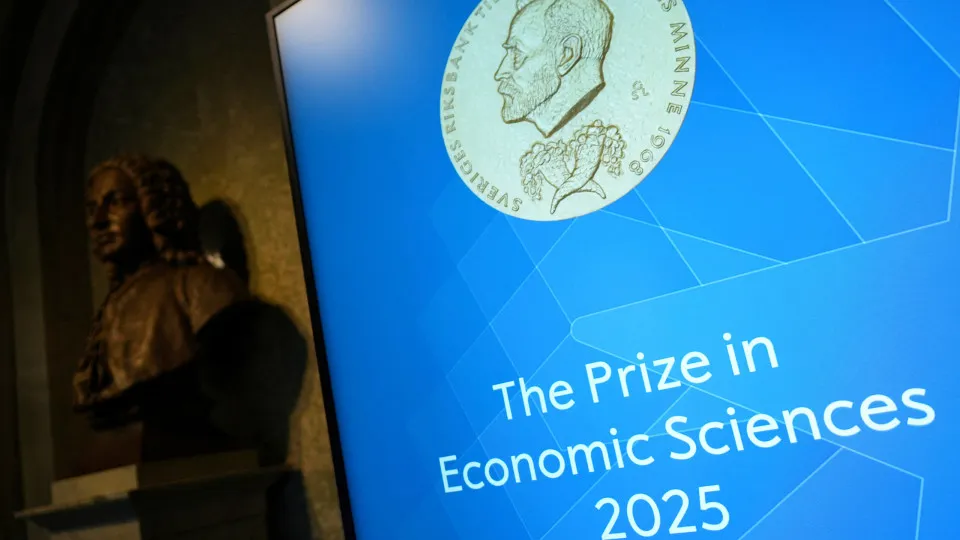
The Nobel Prize in Economic Sciences was awarded on Monday, October 13, to Joel Mokyr, Philippe Aghion, and Peter Howitt for their theories on creative destruction in economics and its significance for growth and innovation, announced the Royal Swedish Academy of Sciences.
The three economists were honored with the Nobel Prize in Economic Sciences “for having explained innovation-driven economic growth,” as announced by the Royal Swedish Academy of Sciences.
Half of the prize, valued at 11 million Swedish kronor (approximately one million euros), was awarded to Mokyr, an American-Israeli, aged 79 and a professor at Northwestern University in Illinois, USA, for “identifying the prerequisites for sustainable growth through technological progress.”
The other half was jointly awarded to Aghion, a 69-year-old French professor at Collège de France in Paris, and Howitt, a 79-year-old Canadian professor at Brown University in the United States, for “the theory of sustainable growth through creative destruction.”
According to the Royal Swedish Academy of Sciences, Mokyr used historical sources to reveal why economic growth has become the norm in recent centuries, in contrast to the stagnation of earlier periods.
He demonstrated that before the Industrial Revolution, scientific explanations were often lacking as to why a new innovation succeeded, and without that knowledge, it was difficult for inventions to follow one another in a self-sustaining process.
Additionally, Mokyr emphasized the importance of society being open to change and new ideas.
On the other hand, Aghion and Howitt developed a mathematical model of so-called creative destruction in a 1992 paper, which refers to the phenomenon where, when a new and better product enters the market, companies selling the old product incur losses.
The two laureates showed in different ways that this creative destruction leads to conflicts that must be managed constructively; otherwise, established companies and interest groups will block innovations to avoid being harmed.
The laureates’ work shows that economic growth cannot be taken for granted. “We must support the mechanisms that sustain creative destruction to avoid falling back into stagnation,” stated John Hassler, chair of the committee that awards the Nobel Prize in Economic Sciences.
BREAKING NEWS
The Royal Swedish Academy of Sciences has decided to award the 2025 Sveriges Riksbank Prize in Economic Sciences in Memory of Alfred Nobel to Joel Mokyr, Philippe Aghion and Peter Howitt “for having explained innovation-driven economic growth” with one half to Mokyr… pic.twitter.com/ZRKq0Nz4g7— The Nobel Prize (@NobelPrize) October 13, 2025




